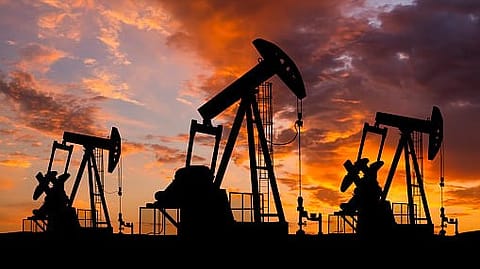M&A opportunities beckon Indian petrochemical companies as global trade under pressure
Strategic moves in M&A, technology, and sustainability could secure a competitive edge for Indian players.

While the global petrochemical sector is undergoing significant consolidation, India is uniquely positioned to emerge as a regional consolidator, given its robust domestic demand and expanding manufacturing capacity, says a report.
The global petrochemical sector is now plagued by prolonged low margins, overcapacity, and shifts in regional growth patterns. There is a steep drop in sector profitability, with average Return on Capital Employed (ROCE) falling from 8% in 2019 to 4% in 2024.
Capacity additions in several regions are outpacing demand growth. These conditions are accelerating rationalisation and consolidation efforts, as companies seek to remain competitive in an increasingly challenging environment, says growth patterns, according to a new report by Boston Consulting Group (BCG) titled "Preparing for the Next Wave of Petrochemical Consolidation."
The report says, today, the industry faces extreme volatility as supply-demand imbalances escalate. Demand growth has slowed and is expected to continue slowing over the next decade, which will likely ensure that oversupply persists. Global utilisation rates for key commodities such as ethylene and propylene have plummeted and are forecasted to remain well below their historical averages, exerting pressure on margins and increasing competition.
Recognising this reality, some petrochemical companies have already begun rationalising their manufacturing capacity, especially in Europe. Since 2023, players have reduced capacity there by nearly 14 million tonnes per annum (mtpa). This includes Sabic’s closure of its Olefins 3 cracker in the Netherlands, ExxonMobil’s closure of its Gravenchon steam cracker in France, and Dow’s decision to temporarily idle its LHC3 cracker in the Netherlands.
Meanwhile, the competitive landscape has heated up as players in China, the Middle East, and North America continue to build their production capacity.
The consolidation trend is quickly gaining steam. More than 300 deals were announced in 2024, among them Ineos’s acquisition of Total Energies’ 50% stake in Naphtachimie, Appryl and Gexaro, which were previously joint ventures of the two companies. More transactions are anticipated in 2025, including an announced signature deal whereby Borealis and Borouge will merge - the new entity, Borouge Group International, will acquire Nova Chemicals for $13.4 billion. Orlen is set to acquire Azoty’s polyolefins business.
Recommended Stories
With an eye on this strategic opportunity, Indian petrochemical players must now look beyond organic growth to targeted M&A, vertical integration, and investment in technological and sustainability capabilities, says the report.
“As the global petrochemical landscape moves toward a new phase of consolidation, India stands at a strategic inflexion point. With strong domestic demand and a growing manufacturing base, Indian players have the opportunity to carve out regional leadership by leveraging targeted M&A, securing critical feedstock access, and strengthening their technology and sustainability edge,'' says Commenting on the opportunity ahead, Kaustubh Verma, Managing Director & Partner, Energy Practice, BCG. To stay competitive, companies must proactively assess their portfolios and prepare for multiple market scenarios. Those who act decisively now will be better positioned to capture long-term advantage, he says.